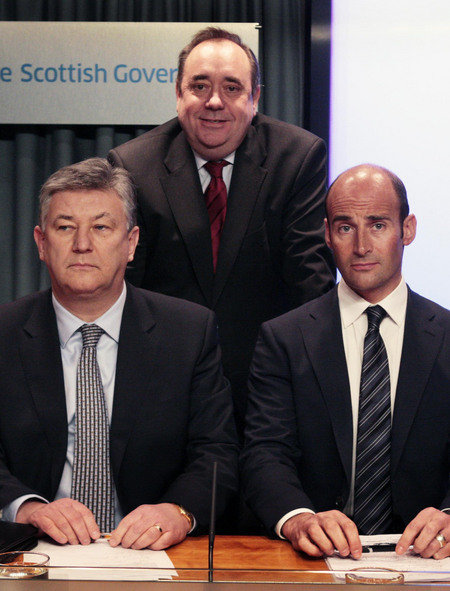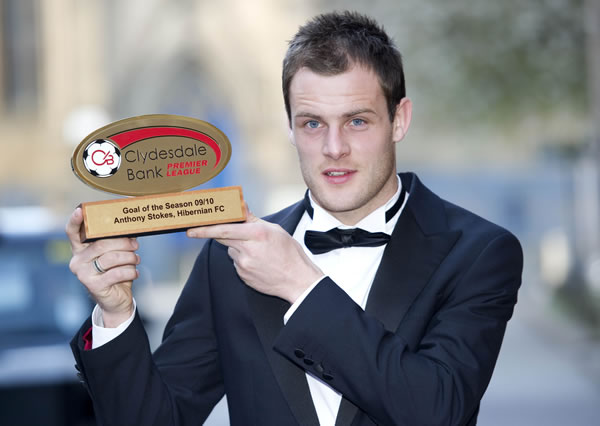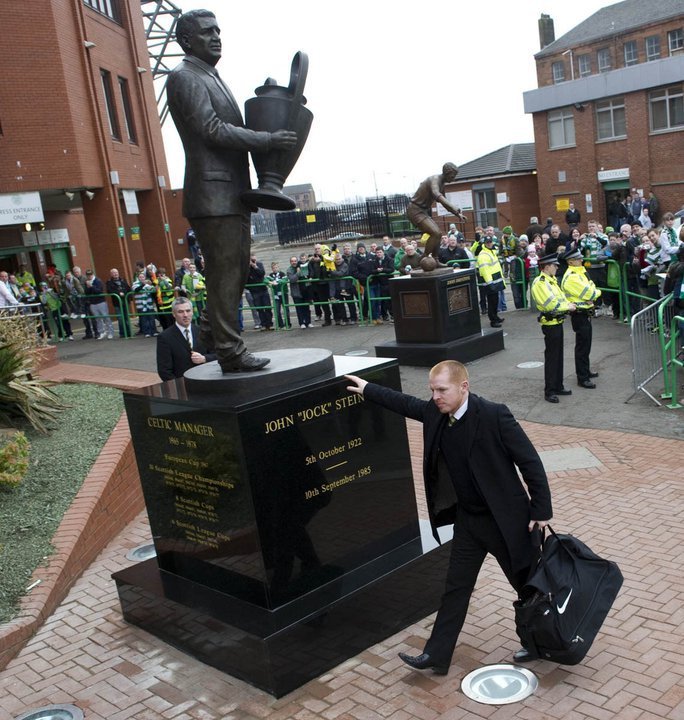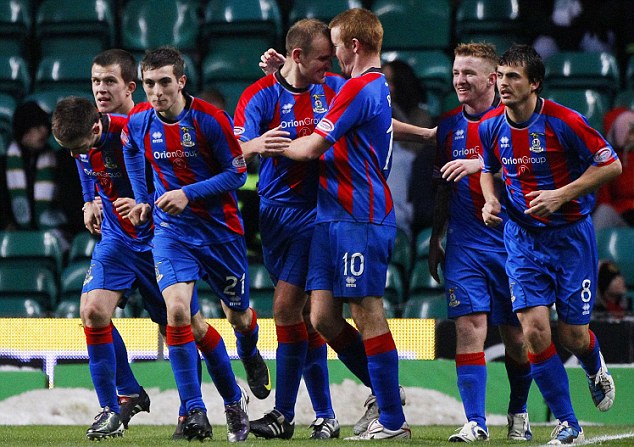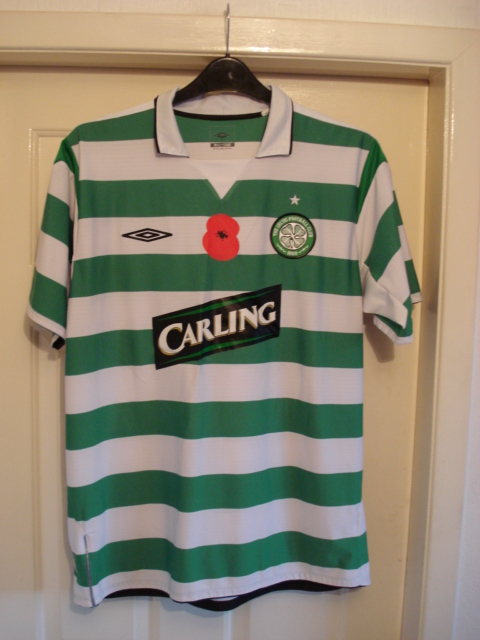Let’s remind ourselves of other active agents embroiled in the current Old Firm tensions. The governing body has been exposed as lying to the Celtic manager and the media about controversial refereeing decisions and has had high profile members implicated in the forwarding of offensive emails about the Pope and child abuse, both resulting in resignations or sackings. Meanwhile, far from being neutral observers the absented media are active participants who, in the words of John Pilger, cannot – even if they desired – rise to the nirvana of impartiality. In recent years for instance, high profile journalists have laughed off the bigoted acts of Rangers fans’ potato throwing in mocking reference to An Gorta Mor, labelling the offended “desperate” and “irate”. Sections within this same media felt safe in deriding aspects of Catholicism in ways they wouldn’t tolerate in relation to other minority faiths. (“The fish on a Friday … you couldnae’ whack it”; “Celtic fans would probably rather have a bead rattling hoopy hound in the dugout”). They have racially caricatured the Irish (“grip on Irish politics is similar to that on an old Oirish dresser”). When the Scottish courts were ruling the singing of the so-called Famine Song illegal some of Scotland’s top journalists were defending it as “humour” whilst castigating Celtic fans for being easily offended and “politically correct” whingers. Furthermore, the Scottish-born Irish diaspora has even been told by some journalists to ditch its “plastic Irishness” or “go home”. Thus in some Scottish pressrooms Irishness in Scotland is (re)constructed as a deviant/outsider identity and victim blamed for their own victimisation. More sinisterly, this approach characterises sections of the media (re)construction of Neil Lennon whilst downplaying the bigger story, a top football coach receiving death threats and bullets in the post.
Whilst these media examples may not be the work of intentional bigots, they are the outcome of institutionalised ‘sectarianism’ which sees nothing wrong with being intolerant towards a minority group. To exempt the media (among others) from the summit line-up, therefore, reveals a major methodological flaw in solving the ‘problem’ with those seeking to fix the problem not fully understanding it. We are all part of the problem, thus all part of the solution and if we ignore such a major player as the media there will never be a satisfactory solution. It’s easy to lay the blame on Rangers and Celtic. Yet surely others are culpable for the shamefully embarrassing indictment from UEFA in 2006 when they felt unable to punish Rangers for its fans signing the banned Billy Boys because “it has been tolerated for so long in Scottish society”.
The polysemous term ‘sectarian’ should be ditched. Rather we must expose prejudice and embrace difference and this difference needs to be fully contextualised. For example, we wouldn’t analyse current South African race relations by ignoring the apartheid regime and its residual legacy, yet this is what happens when analysing ethno-religious intolerance in Scotland. Acknowledging the ‘elephant in the room’ is necessary and this requires reflecting on UEFA’s indicting assertion of Scottish society alongside distinguishing between Rangers’ anti-Catholic Protestant culture and Celtic’s catholic Roman Catholic culture. This is crucial yet almost universally unacknowledged, stripping the relationship of its historical contexts to mistakenly anchor Rangers as ‘Protestant’ and Celtic as ‘Catholic’, thus equally culpable. Rather than plead pious indignation at Rangers fans celebrating “being up to their knees in Fenian blood”, wishing for “no popes, priests or rosary beads” let’s acknowledge the residual legacy of this club refusing to knowingly sign Catholics until 1989, endorsed in such intolerance by sections of Scottish society acquiescing. Celtic has problems too but they’re not identical to Rangers’. Celtic fans branding Rangers “orange bastards” also needs to be understood as part of a broader socio-historical legacy. Singing Irish (political/folk) songs needs to be differentiated from singing and/or behaving in anti-Protestant ways. Celtic’s different problems are an unsurprising outcome of its different legacy. For example, they recently unveiled a statue of their fans’ choice of ‘greatest ever Celt’, Protestant Jock Stein. A Catholic being revered as the greatest ever Ranger by fans and club alike remains unimaginable illustrating sharply the contrasting realities of both clubs. Understanding these nuances are necessary for any solution because cultural shifts are required and the residual legacies of culture exist for generations, making culturally insensitive policies unlikely to shift ingrained attitudes.
The solution requires analysing stakeholders’ behaviour and actions on individual merits. Whilst their historical legacies differ, the clubs’ recent trajectories are remarkably similar enabling objective contrasts by which to judge them separately. Both clubs took record numbers of travelling fans to UEFA Cup finals and both lost. Celtic’s fans were universally congratulated and awarded international fair play awards. Rangers’ fans engaged in large-scale rioting and major disorder and were largely criticised. The last fixture between both clubs resulted in a total of 34 arrests with Rangers fans twenty times more likely to be arrested than Celtic fans. Evidential trends, therefore need to be recorded, mapped (where appropriate) to ethno-religious intolerance, and understood in context to discover the problem and hence its solution. Yet, perspective is required. Academic Bert Moorhouse noted the Glasgow derby “exudes that enticing whiff of primitive savagery”. It is this seductive whiff that inflames the appetite of a salaciously salivating Scottish press who, despite oxygenating much of the ‘problem’, hypocritically exalt post-match shock, horror and revulsion. Recognising this Caledonian antisyzygy and the media’s active role need to be part of any solution or the problem will never disappear.
Dr John Kelly
Lecturer in Sociology of Sport
Institute of Sport, Physical Education and Health Sciences
The Moray House School of Education
University of Edinburgh
Telephone: 0131 6516642
http://www.education.ed.ac.uk/

